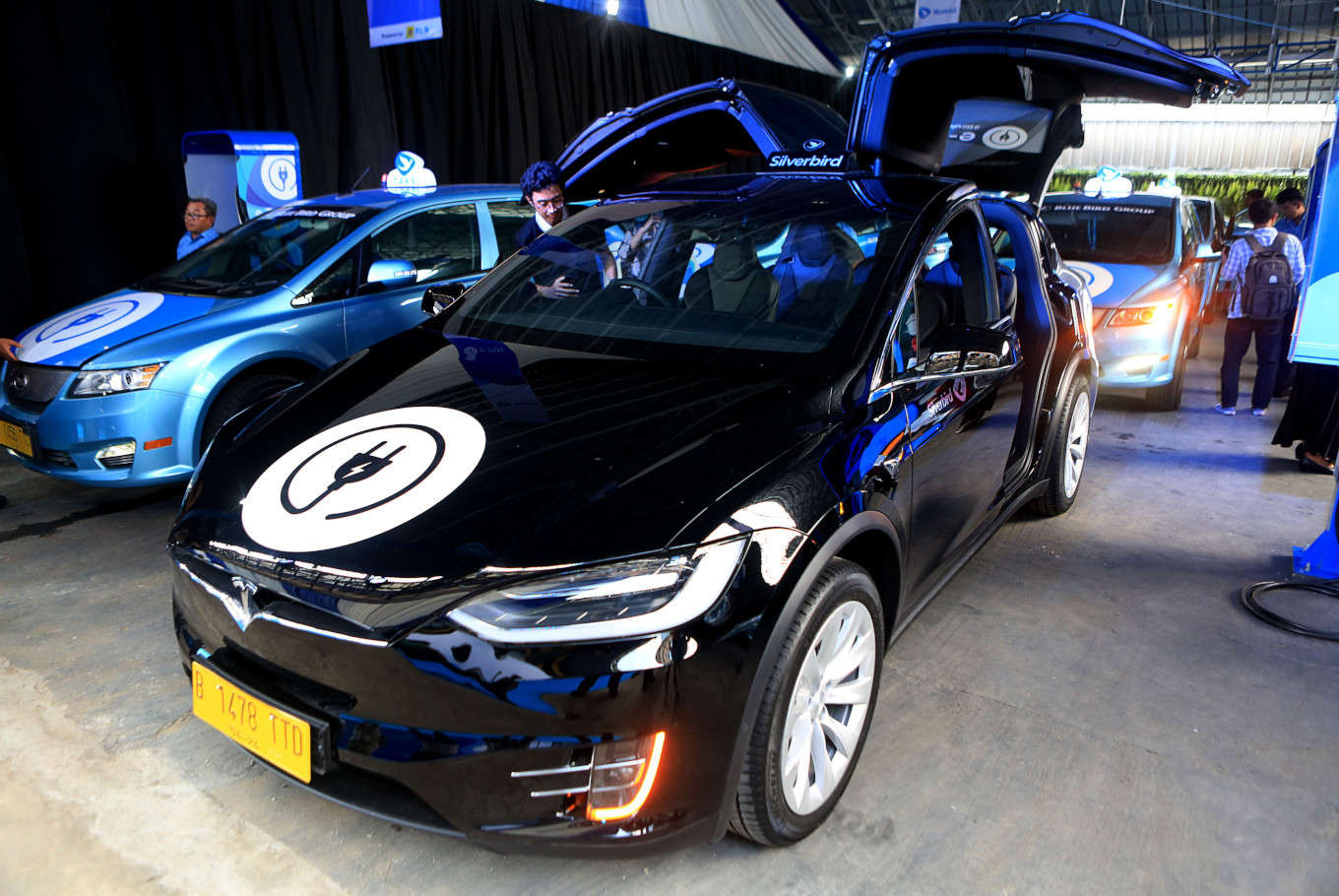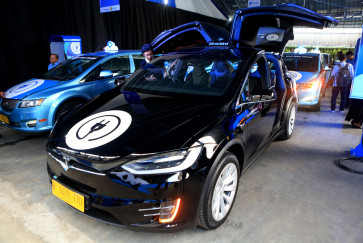Popular Reads
Top Results
Can't find what you're looking for?
View all search resultsPopular Reads
Top Results
Can't find what you're looking for?
View all search resultsIndonesia’s energy security hinges on EV-green energy approach, says ERIA
A regional study says that adopting electrified vehicles (xEVs) will only go so far toward Indonesia's energy security, and that it must be combined with a shift to renewable energy.
Change text size
Gift Premium Articles
to Anyone
S
witching to electrified vehicles (xEVs) will only improve Indonesia’s economy and energy security significantly if the move is combined with a shift to renewable energy, says a recent study by the Economic Research Institute for ASEAN and East Asia (ERIA).
ERIA researcher Alloysius Joko Purwanto told reporters on Sept. 18 that the aforementioned scenario was possible because the increased electricity output needed to power the vehicles would offset any carbon emission savings from reduced fuel consumption, since most power plants in Indonesia relied on fossil fuels to generate electricity.
“Without proper regulation, there is a possibility that electricity production will be based on dirty sources [of energy] like coal, as is happening in China and Germany,” Joko said at a press briefing on the ERIA study, which was published in August.
The "Study on Electric Vehicle Penetrations’ Influence on 3Es in ASEAN" has projected that the Indonesian economy would be 1.2 percent larger than the current economy by 2040, or around US$2.64 trillion. The projection assumes that all cars on the roads are electric and renewable energy contributes 28 percent to power generation in 2040 Indonesia.
According to the Energy and Mineral Resources (ESDM) Ministry, renewables presently contribute 15 percent to Indonesia’s installed electricity generation capacity.
"xEVs' impact on GDP is slightly positive because suppression of net imports such as petroleum and investments (additional cost for conventional technology) in xEVs (and low-carbon power) stimulate the economy," says the study.
In comparison, the 2040 economy would only be 0.5 percent larger than the 2019 economy if Indonesia adopted electric cars without enforcing the renewable energy targets stipulated in the General Planning for National Energy (RUEN).


















